Jacob Weiss – Juggling Healthcare Messaging
A wise man once said laughter is the shortest distance between two people. Well, there’s no shortage of laughter in this episode with Jacob Weiss, who’s the director of High-Wired communities and Entertainment That Gives Back. Listen to the podcast and find out why laughter is the best medicine on Get Social Health.
Contact Jacob
Transcript
Janet: 00:00 A wise man once said laughter is the shortest distance between two people. Well, there’s no shortage of laughter in this episode with Jacob Weiss, who’s the director of High-Wired communities and Entertainment That Gives Back. Listen to the podcast and find out why laughter is the best medicine on Get Social Health.
Announcer: 00:21 Welcome to Get Social Health, a conversation about social media and how it’s being used to help hospitals, social practices, health care practitioners, and patients connect and engage via social media. Get Social Health brings you conversations with professionals actively working in the field and provides real-life examples of healthcare social media in action. Here is your host, Janet Kennedy.
Janet: 00:47 Welcome to the Get Social Health podcast. Today I have somebody who is going to help me solve some personal problems and that is Dr. Jacob Weiss.
Janet: 00:56 He is a researcher and a social entrepreneur and he’s going to be speaking at the annual conference of the Mayo Clinic social media network that’s coming up November 14th and 15th in Jacksonville Florida. His topic is how juggling taught me to engage my community for health and well-being. Well I have to tell you I’m having a lot of trouble juggling and also juggling and engaging my community. So this is going to be a very valuable session for me. Welcome to Get Social Health Jacob!
Jacob: 01:28 Thanks thanks for having me.
 Janet: 01:30 I was flabbergasted when I saw that we were going to have a person with expertise in juggling at the annual conference of the Mayo Clinic social media network and I’m thrilled because I actually have a cousin who is a professional mime, clown, and she has awesome juggling skills. So that is amazing.
Janet: 01:30 I was flabbergasted when I saw that we were going to have a person with expertise in juggling at the annual conference of the Mayo Clinic social media network and I’m thrilled because I actually have a cousin who is a professional mime, clown, and she has awesome juggling skills. So that is amazing.
Jacob: 01:52 Yeah it is. It’s going to be a lot of fun for a lot of people don’t realize the connections you can make and the AHA moments you get when you bring in something that’s a different industry. But where there is a really positive connection that you can make, and building bridges across.
Janet: 02:08 Absolutely. And I think some of this has to do with when you send people particularly to a conference or an event where they’re expecting the same old same old. And you throw them for a loop. They’ve got to kind of think differently.
Jacob: 02:24 One of the things I love about juggling is it’s that physical getting up and moving it’s visual it’s it’s not another PowerPoint slide for example and it and so if you’re trying to convey a message or teach or share knowledge you can’t just share the content you have to do in a way that keeps them awake. That makes them engage in a way that it’s really sticky that they can remember back to it when they want to use it. So that’s one of the powerful ways that we use juggling as part of sharing content and real knowledge as well.
Janet: 02:57 All right wait a minute I’m very easily distracted as you’ll probably discover in this podcast interview. However, I’m envisioning you being up there and juggling three to five balls and all this awesome stuff is going and your and you’re imparting words of wisdom.
Janet: 03:11 I gotta tell you I’m going to be totally focused on your juggling skills and I’m not going to be listening.
Jacob: 03:16 Fair enough. And I will give you a preview that most of the time that there’s talking. It’s not at the same time as the juggling so that the juggling will make you can enjoy it and have fun with it and then we use the other parts following before and after to connect when there’s a metaphor or sharing a story of what I’ve done with juggling and community and building healthy communities using both juggling and social media. So it’s not the distracting part it’s the get you to focus then you can listen.
Janet: 03:51 Well now folks know me as a social media early adopter and somebody who uses it probably to the point where they like Janet you need to take the day off. But I’m trying to put together my idea of social media and juggling. Well, the first thing of course is that’s all social media is I am bouncing from one thing to another trying to keep all my content up in the air respond to things like there’s a perfect metaphor for there. But what you’re actually saying this is a physical metaphor as well.
Jacob: 04:22 There’s the metaphor of keeping the balls in the air. And one of the things I talk a lot about is you know it’s a marathon, not a sprint when you’re learning to juggle. You don’t drop a ball and give up in two minutes and say I can’t do it. Same thing with social media. You’re getting started on that whether it’s a new career path or a new project with social media. You don’t just try something and say Oh did it work. I’m quitting it. It’s really that long-term goal and process which is the same as learning to juggle. So you’ve got those metaphors. But there’s also a real physical mindset shift that you can make a connection to while you’re actually physically learning to juggle. And so it’s not just a conceptual metaphor but it’s a physical experience that you can go through that that you can make connections to when you’re working on those other areas of your life or work.
Janet: 05:19 All right let me ask you something and maybe this is why I’m not very good at juggling and I can’t get past five passes the ball is because I’m always thinking about the ball’s going to land here and the ball’s going to land here as often we do and work of I’m going to do this again this which means everything just becomes a blur. Am I doing juggling wrong?
Jacob: 05:41 I would say you’re doing juggling wrong a lot of ways if you can. One of the ways we teach for example when we’re really teaching getting past the first couple of throws is to stand over a table or a desk and let those next. Those that you’re trying to get to hit the ground right it lands on the table. Then you have infinite time to make the next throws after that’s already landed on the ground. And it also helps you get past worrying about the drops and really focusing on that. So it’s it’s like with work when you’re working on social media or any really any work or project it’s its focus on what you can be getting done now not worrying about the next drop that could happen and end. And then you get to that as it comes. And so it’s juggling it really is almost like yoga or meditation is that sense of flow. You have a feeling of when it clicks in.
Janet: 06:39 I will say the other part of the metaphor that I really like that a lot of clients or big companies or even healthcare organizations have to grasp is that you’re going to drop a ball and in social media, you’re going to spell something wrong. You’re going to have a link that didn’t work that you’ve got to repost because when you think about the volume of what you’re putting out and the speed at which you’re putting it putting out if your social media is all 100 percent planned vetted reviewed edited and signed off on it’s boring. You know that’s like picking the ball up and then picking the ball up and then picking the ball up as opposed to ball hand, ball, hand, ball.
Jacob: 07:16 Exactly along the lines of what you said in terms of that’s boring people connect on social media. It’s not a press release. Right. It’s that you’re connecting you’re having real conversations with real people. And the same thing when you watch juggling. I often when I teach other performers they’re not watching the balls in the air they’re watching you having fun with the juggling on stage and it’s the same with social media. It’s not just the announcement here announcement their content they’re engaging with you and your personality and that has to shine through in a genuine way. Again it’s the same thing if you’re performing on stage five hundred people as if you have five hundred dollars on social media that you’re engaging with. It really just has to come from a genuine place from you not just what is the content that you’re sharing.
Janet: 08:07 You know I can talk about juggling forever but at some point, people are going to wonder why are we bringing a juggler to this conference and actually you get some letters after your name and you have some established academic credibility to this work you’re doing so tell us a little bit about your background and how you managed to bring this childhood love of something all the way through your academic career.
Jacob: 08:30 Sure. Apart from being a juggler since I was about 10 years old, I went to Princeton University for my undergraduate and I was focused on computer science engineering where in addition to developing computer-controlled juggling musical instruments that I’ve played while juggling with sensors I also developed in the pre-Facebook days Facebook-type friends list connecting sharing kind of building between aim AOL Instant Messenger and Facebook world and of bridging the gap and working on projects and developing concepts from that from the computer science and I then went from there to Vanderbilt University. I did my Ph.D. in biomedical informatics where I was taking a lot of that approach to social networking and the healthcare focus. And when I got there it was there was a really strong emphasis not just on the medical record as in information repository but the medical record as a communication medium between the doctors and the patients and the nurses and everyone involved and so that really was a powerful connection to what I was excited about and that was a time when a lot of things were you know how do we email doctors not even considering anything social media.
Jacob: 09:53 And so a lot of my research was when in the first iPhone came out. We were developing projects around medication management for kids using the early iPhone before you could even make official apps for it. And so all of my research has really been about how do you connect people online but offline as well.
Jacob: 10:16 So a big part of my focus and from that world is not just thinking about social media as something in it by itself it’s something that can also enhance and complement real-world relationships. Right. So if you can have patients all around the world talking. And that’s an important part of social media. But you can also use social media to coordinate emphasis with conversations that also happen in the real world. Whether it’s between the patient and the care team whether it’s in a local support group or which a lot of my work was looking at all of the different nonprofits working in health care in the local community who are very siloed and disconnected.
Jacob: 11:02 How do you find ways to create more connections between them and so did you immediately go into founding your own company or did you work in that traditional bioinformatics program somewhere.
Jacob: 11:16 Yeah it was pretty much right from my Ph.D. starting my own thing in part because I had continued while I was at Princeton I started up the student juggling shows on campus while doing my research. And when I got to Vanderbyl I started up the juggling group and shows on campus there. So I’d always been doing a combination of starting up juggling programs and creating social networking for community building and health care. And so there was no one job that equally considered both of them. There might have been one or the other and they said oh yeah you can do that little stuff you do on the side with you can’t do this while doing that. And so. So it really wasn’t it wasn’t something that I really purposely went into. It’s just continuing what I’ve always been doing really organically growing and so just kept going and applying a lot of my research work more on consulting or project-based work and then starting up a touring juggling performing company.
Jacob: 12:23 At the same time that’s a social enterprise. So we use that juggling and just like my research to create connections between nonprofits between companies and local nonprofits. And so it I sometimes describe even from the juggling side and doing more in line with my research than if I stayed in the field in academia doing what most informatics is focused on. Because my research really was combining the informatics work with community based participatory research models ethnography. How do you bring together a local community for collaborative design of an online space so it wasn’t just how do we use the online space to us? How do you bring people together to collaboratively design an online space for people who aren’t social media experts or designers? And how do you make it something that from participating they learn at the same time and can go back to their organizations and enhance the work they’re doing online themselves. Have you actually published your dissertation part, not the full dissertation? However many of these are papers but papers out of it. For sure.
Janet: 13:38 Okay. And is the word gentling used in near doctoral dissertation?
Jacob: 13:42 Well I don’t think I have to think I don’t think the word juggling ever specifically appears but I will say several of the conferences where I presented that for informatics there was juggling involved in those presentations and in my dissertation defense I believe there was juggling involved.
Janet: 14:02 Oh wow okay. So my really big question is does your mother say my son the juggler or my son the doctor?
Jacob: 14:11 I would say sure. It depends on the context. I think mostly she’ll say my son the juggling doctor but she actually works in medical informatics as well. That’s what got me introduced I’m interested in that field. And so she gets that part of it. But she also has been around since I was a kid so she knows the other half from the juggling side. And again it’s from the outside it seems very different. But if you think about it what I’m doing with everything I do is bringing people together and finding ways to connect with people and connect people to one another. And there’s a quote I like that came from Victor Borge –
Janet: 14:58 I love Victor Borge!
Jacob: 15:00 And it’s “laughter is the shortest distance between two people.” And that applies to what we do with our juggling performances and the outreach we do when we go to children’s hospitals and in the community. And it also applies to social media and making real genuine connections on social media. It applies to what we’re doing in the community and building real relationships when you facilitate conversations in a community. And so I don’t think it’s anything that’s completely different. They’re both two parts of that same mission of bringing people together.
Janet: 15:39 When I look at your LinkedIn profile I see that you actually have five concurrent jobs a year therefrom X to present. So. Oh my gosh, what exactly do you do for a living?
Jacob: 15:52 So again the concurrent it’s all part of all of the pieces that you see on LinkedIn where they’re all the different pieces and programs that we’re doing with the companies that I started. So technically there are two companies the informatics social media community building consulting and the other is the juggling performance side. But a lot of it weaves together in different ways. And so, for example, one of the programs that we’re doing that we just launched this past year it builds on what we’ve been doing with our touring performances and outreach and just really quick with that the model as a social enterprise it’s kind of like that Tom’s Shoes model if you know where every pair of shoes you buy they donate a pair of shoes to a child in need with our live performing. Every time our show is brought in to a corporate event we donate a visit to a non-profit in the community and we just launched a program that not just it’s not just our visit out in the community that’s real and we see the impact it makes but we’re able to donate excess of juggling balls as well to the different programs because again the juggling it’s the fun as the play.
Jacob: 17:06 But it also helps people connect with the mindset going from an I can’t do this mindset to oh I can do this. We have a path to success. A message that says try drop, try drop, try drop, over and over down the page. Pause. Breathe. Try. It will succeed. And when people learn to juggle they can connect to that mindset and apply it to other things that they’re doing. So that’s the that’s what do good and juggle is. But all of them are part of the kind of core companies that I’ve started.
Janet: 17:48 So what kind of companies are bringing you in, and do they know what they’re getting ahead of time?
Jacob: 17:54 Oh yeah, well some companies will bring us in for the entertainment and then as talking and they realize that I have my Ph.D. in healthcare and technology and also are giving back elements. Then we start talking even more about that piece and then some people are looking more for the community building consulting or corporate training or leadership. I teach a course on community engagement and leadership and end up bringing the juggling and improv comedy techniques and storytelling into that process of the class there and so sometimes people come from one direction and get the other and then it can be flipped depending on who the client is. But we did we do kickoff for a large healthcare company technology company conferences and we’ve been to the White House Madison Square Garden. So from the performing end, we do that side and then from the training side we’ve worked with a lot of some of the major marketing companies, for example, brought us to work with their teams as well as incorporate giving back elements so sometimes companies will bring us in when they’re trying to do something that gives back. But there’s also a team-building or fund program for their employees as well.
Janet: 19:12 Oh that sounds like a lot of fun when you were telling me before we started the interview what your schedule is like over the period where the conference is going on. I was sort of mind boggled. You have to have somebody who says Not today if it’s Tuesday it must be Belgium.
Jacob: 19:30 Right. So yeah we’ve got at least three possibly four. If I do something locally in Nashville that just came in that week. So basically from Sunday Sunday three different cities which is not always that crazy but it definitely can get a little hectic with that.
Janet: 19:47 Now what exactly is an entertainment? What is your show like? I mean no lions no tigers no trapeze. So what exactly are you doing? Is it a circus event?
Jacob: 19:59 So at the conference, I’ll be doing some incorporating some of the performance acts from our touring show and more so doing a lot of talking and making that connection to social media and healthcare and community building with our touring show. We also do that by itself where it’s an hour to 75 minutes no speaking. It’s a three-person show sometimes. And people have compared it almost to Blue Man Group without the crazy makeup. If that makes sense. It’s no speaking it’s got a lot of musical elements juggling physical comedy but really it’s just the three of us having fun on stage together and sharing that with the audience Dave juggles fire. We don’t juggle fire in the show. I can and have but are most of what I do with the performing it’s more about the creativity and the teamwork than it is about the danger elements.
Janet: 20:56 All right. This is going to be so exciting and it’s really going to catch people by surprise. I think this is going to be a great event.
Janet: 21:04 And I know that it sounds like you’re doing some really amazing things when you go to say do a corporate event you’ve got this pay it forward model where you’re doing something is it hospital visits are you doing fundraising shows?
Jacob: 21:20 Some of it’s been more into the fundraising style. Most of it is more going out into the community like to the hospital and visiting with the patients doing a show in the lobby for the patients and the families and the staff even which I think that’s an important part of wellness for the caregivers and the staff and ignoring that element. And so we’ll do that we’ll go out into a local school for example. And and so just giving you an example sometimes that if the client really wants to plan a big event that ties into a charity that they’re trying to support then we end up doing that if that’s what their interest is. But sometimes it might be just visiting, for example, local Ronald McDonald House and there is an example of an event we did. And we went. We went to the local Ronald McDonald House and it was pouring outside.
Jacob: 22:18 And so most of the families were stuck in the hospital and couldn’t get back to the house. But there was one family. It was the husband and wife whose child was in the hospital but they couldn’t get there because of the rain. And so we ended up just doing a short show in the living room for that couple and taught them to juggle. And it wasn’t what we planned in terms of how many people were going to be there. But on the way out and we were leaving and the house manager told us that was exactly what they needed at that time. And so we’ve had other people with our outreach describe how they haven’t left together as a family and over a year and that this was a way that they were able to do that and connect us especially if they were in the hospital or dealing with a challenge like that.
Jacob: 23:10 So so that’s our outreach. It really can be tied into the client wants to focus on health care education and we’ll work with them. But we just see the power and impact that it makes. And that’s something that came from my work. The first outreach we did was working with a lot of the Cancer Support Programs Gilda’s Club here in Nashville is an amazing program and we’ve worked with them. And I got to know them from when I was doing my research and working with the cancer center at Vanderbilt. And so we’ve found ways to do programs for them. And so most of it’s less about the fundraiser elements and more about really making that personal impact with the families who need it.
Janet: 23:57 I love all of this and I love the fact that you’re maybe the first person I’ve ever spoken to that had a passion as a child that they have been able to carry through their whole adult life and into their career. That’s awesome and cool.
Jacob: 24:12 And I will say it was not planned. If you asked me when I was doing my Ph.D. and doing this student shows at the same time if I plan to be a professional juggler in any way and I wouldn’t have said so. Actually, when I first got to Princeton I had no interest in performing I was just juggling I didn’t think I had time for it. And then it just gradually evolved. And so it’s it’s been very organic and not scripted in and how I want to incorporate it and that I’ve always dreamed of being a professional juggler since I was a kid. But it’s been something that’s been a solid foundation and core to everything I’m doing.
Janet: 24:53 All right so where do you go for professional development?
Jacob: 24:56 You know some of the people that I work with for example who do storytelling and storytelling as a way to see different ways to think about things whether it’s strategy or opening up connections. And so those kinds of those partners that I work with but also learn from at the same time there’s a lot of people that I look up to both from that and then there are people whether it’s in the fitness industry and they share advice and messaging around for example. You know trust the process which is a message around their fitness but it’s also a message for careers my career for what we’re doing with how we teach the juggling.
Jacob: 25:41 There’s a lot because it’s the typical industry where you go and take a professional development community building and juggling and healthcare technology all woven together. I kind of get it piece by piece. I do a lot of reading and listening to podcasts and following people look up to from that an awesome.
Janet: 26:01 Well OK. Is there a great circus podcast you’d recommend?
Jacob: 26:05 I don’t follow too much circus podcasts. I would say more from I would say the marketing. There’s a lot of videos that you know keep up with people posting videos from the circus and juggling side through Facebook and you know that network and I follow more of the marketing podcasts and healthcare and those side of things as well.
Janet: 26:29 Now you’ve got to have a guilty pleasure podcast. So is it serial killers or True Crime or history?
Jacob: 26:37 No I don’t. I haven’t really gotten into that side of podcasts listening although I would say that part of everything in terms of what I do free-time wise my wife and I have our 21-month-old at home. So everything’s been a blur for the past few years now.
Janet: 26:57 I can’t imagine. All right so just so you know this is a parent tip here when your child is 22 months old. Measure them double their height and that’s how tall they’ll be as an adult.
Jacob: 27:08 Interesting.
Janet: 27:09 Not 24 months.
Jacob: 27:10 I will look at that. I will look at that.
Janet: 27:13 I did that for my son and lo and behold he did grow up to be 6 feet 4 inches tall. So.
Jacob: 27:19 Well my wife’s mother is six feet tall and so maybe our daughter will get that side of the family but who knows.
Janet: 27:26 There you go. Well I am so looking forward to meeting you in Jacksonville and a hearing watching and sounds like actively participating in your program. It’s going to be a great event.
Jacob: 27:40 And I’m going to have a lot of fun. And look forward to seeing everyone there and always feel free whether you see me at the conference to come up and say hi and mine. Always happy to connect and look forward to meeting everyone.
Janet: 27:54 That’s going to be a blast. All right I’ll bring my own juggling balls and I will see you in a few months at the Mayo Clinic annual conference of the social media network. It’s taking place November 14th and 15th on the Mayo campus in Jacksonville Florida. If you happen to be new to social media and or health care there’s also an all day program on the 13th which is called the social media residency. So you can really get up to speed no matter whether you came from the journalism marketing side of the house and need to learn healthcare or you come from the healthcare side of the house and you’re not that experienced with marketing and social media. That is a great intensive daylong session that you will walk away from with practical and tactical ways to manage your own social media. So I encourage you to look into that as well. Social media dot Mayo Clinic dot org is the place to find this information. Again Jacob thank you so much for joining me and I look forward to seeing you soon.
Jacob: 28:52 Thank you.
Announcer: 28:52 And now here’s a social media success tip.
Lee Aase: 28:57 Hi this is Lee Aase. I’m the director of the Mayo Clinic social media network and happy to share one of my favorite tips and that is to don’t overcomplicate things. I know that in some of the early days with the flip camera many of the complaints that people had was an audio quality. And so they would often look for a camera that could have an external microphone and that would sometimes complicate things to the point where they didn’t shoot the video that they could otherwise abused. So one of the rules that I live by is that you can’t edit what you don’t shoot. Wow, I agree it’s great to get external microphones. I’d be focusing on some of the shotgun ones the ones that can attach to a bracket with the iPhone or Android phone but not to get overly complicated. Look at what you can do in terms of natural light as well as finding a good quiet place to do the interview so that you don’t get hindered from actually shooting the video. That could be really helpful for your communications purposes.
Announcer: 30:07 You’ve been listening to the Get Social Health podcast. The show notes are located at getsocialhealth.com. To join our healthcare social media journey, follow @getsocialhealth on Twitter and start a conversation.
Janet: 30:22 Thanks for listening to the Get Social Health podcast, a production of the Healthcare Marketing Network. And a proud member of the Healthcare Podcasters Community. I’d like to take a moment and tell you a bit about the Healthcare Marketing Network. We’re a community of freelance healthcare writers. Our organization can match your company or healthcare practice with clinically accurate, specialized, or general health care and medical content, from blogs to white papers to CME, the Healthcare Marketing Network has the writers you need to reach your business audience or patients. To find out more visit healthcaremarketingnetwork.com or contact me via social media or email at [email protected]. Thanks for listening to the Get Social Health podcast.


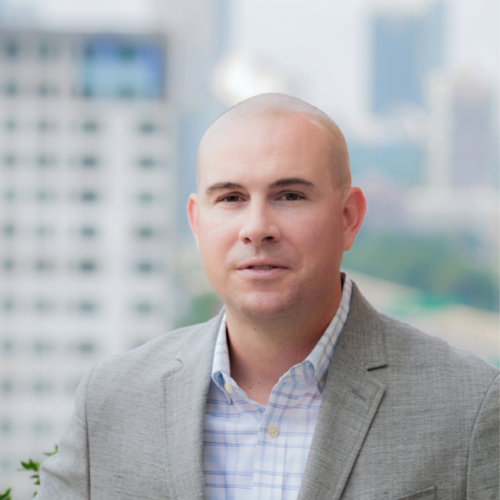
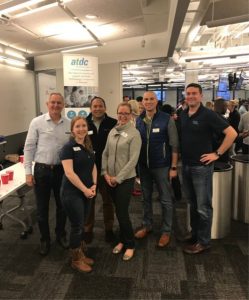 Since leaving Influence Health in 2017, Michael Sengbusch joined ATDC as the CTO-in-Residence. ATDC is Georgia’s oldest, largest, and most influential startup incubator. At ATDC he mentors and advises over 40 startups in Atlanta. Michael continues to be actively involved in both healthcare and marketing technology. He will be speaking at Healthbox Studio in October on healthcare marketing topics.
Since leaving Influence Health in 2017, Michael Sengbusch joined ATDC as the CTO-in-Residence. ATDC is Georgia’s oldest, largest, and most influential startup incubator. At ATDC he mentors and advises over 40 startups in Atlanta. Michael continues to be actively involved in both healthcare and marketing technology. He will be speaking at Healthbox Studio in October on healthcare marketing topics.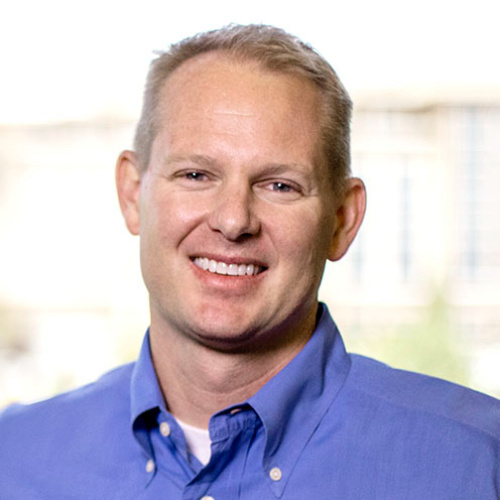
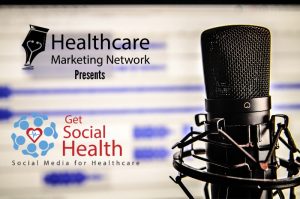 Connect with Solutionreach
Connect with Solutionreach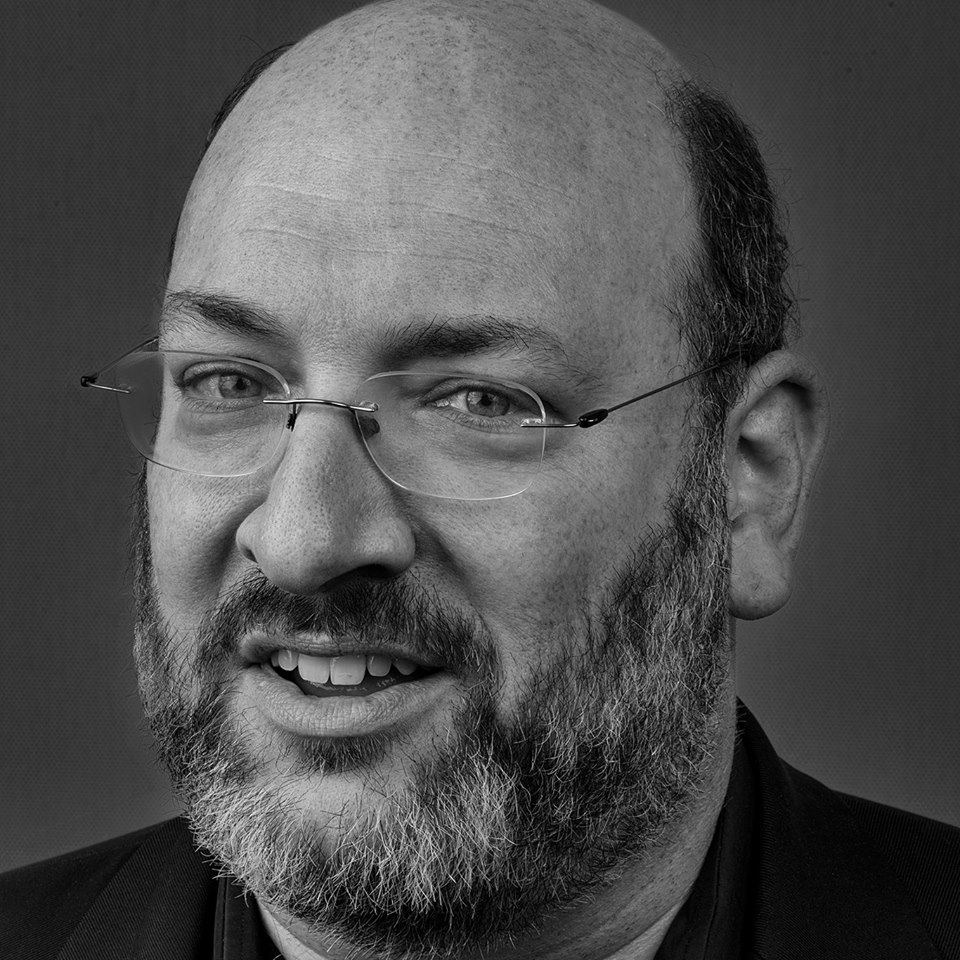

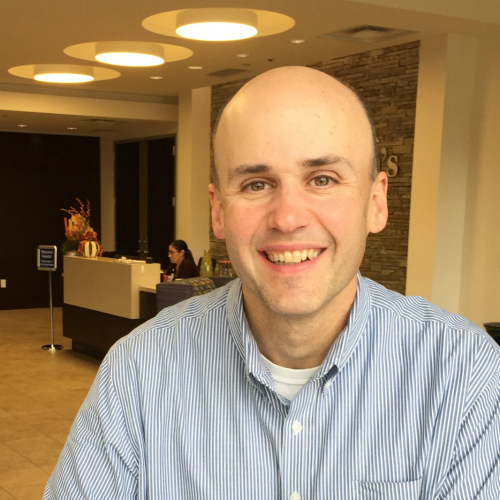
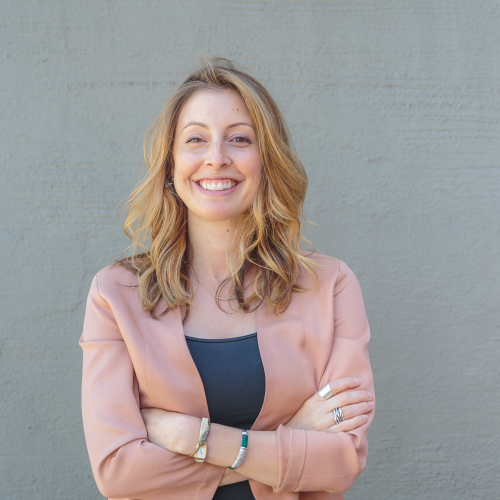
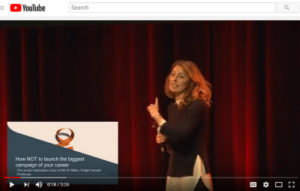 21:20 Work at Meded Digital
21:20 Work at Meded Digital